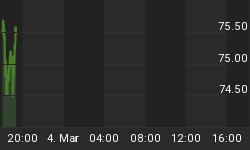ECB Hints at March Stimulus
ECB president Mario Draghi ignited the markets today with Hints at More Stimulus in March.
Investors reacted positively to Mr. Draghi's comments Thursday, with eurozone equity markets moving higher in anticipation of further stimulus from the central bank. The euro fell against the U.S. dollar while government bond prices rose, another sign that investors expected Mr. Draghi to deliver fresh measures in March.
Speaking in a news conference, Mr. Draghi said the stimulus measures undertaken by the central bank since June 2014 -- and topped up most recently in December -- had "strengthened the euro area's resilience to recent, global economic shocks."
But he added that fresh declines in oil prices suggest that the annual rate of inflation in 2016 is likely to be "significantly" below forecasts released last month.
Five Draghi Takeaways
Heading into the market close, there's not much left of today's rally. Crude has not even held the $30 level, but a half hour remains.
The Wall Street Journal offers 5 Takeaways from Mario Draghi's News Conference. My comments follow these takeaways.
[Draghi warns] inflation is the currency area is likely to be "significantly weaker this year than had been expected, and that consumer prices may even fall again in coming months. That means further action may be required, and as early as the governing council's next gathering. "It will be necessary to review and therefore possibly reconsider our monetary policy stance at our next meeting in March," said Draghi.
[In regards to the failure of the ECB to raise the inflation rate towards the central bank's target of just under 2% from the 0.2% rate recorded in December, Draghi proclaimed] "We are not surrendering in front of these global factors. We will confirm our determination to continue to comply with our mandate even in face of adverse developments."
His final comment of the hour-long conference? "We don't give up."
ECB Inflation Mandate
Please note whose inflation mandate Draghi is desperate to meet: "our mandate." It's a self-imposed mandate, and a ridiculous one at that.
I repeat my challenge to Keynesians "Prove Rising Prices Provide an Overall Economic Benefit".
Draghi's torturous Press comment lasted over an hour. The final 4 minutes are worth a look. I position the video at that spot.
Keynesian Inflation Nonsense
The Wall Street Journal points out "The annual inflation rate in the 19-country currency area has been far below the central bank's medium-term target of just below 2% since late 2013. Central banks usually try to avoid deflation, or steadily falling prices, as it can lead to consumers holding off purchases and ultimately lower the standard of living of the entire economy."
Consumer price inflation, called Harmonized Index of Consumer Prices (HICP) in Europe, is indeed lower than what the ECB wants. But the second half of the above paragraph which proclaims "falling prices cause consumers to hold of purchases thereby ultimately lowing standards of living is complete" Keynesian nonsense.
Falling prices are a good thing. Money goes further. If falling prices caused people to delay purchases not a single computer would have been purchased for decades.
Consider clothes. Someone who needs a coat will buy one even when prices fall. On the other hand, if prices were rising rapidly, consumers might have to choose between a coat or eating.
There is absolutely no economic benefit to rising prices.
ECB Oil "Rally" In Pictures

ECB Bond Purchases

Draghi Has No Clothes
If padding the central bank balance sheet causes inflation, then why the hell hasn't it?
The answer is: it did, just not in the CPI or the HICP. Instead, central banks sponsored yet another asset bubble. This bubble is even more widespread than the housing bubble that preceded it.
Another round of asset deflation is now baked in the cake.
History proves it is asset deflation, not consumer price deflation that is economically damaging.
The BIS (Bank of International Settlements), agrees with that statement. For further discussion, please see Historical Perspective on CPI Deflations: How Damaging are They?
Meanwhile, please note that Mario Draghi was bare-assed naked at today's conference.
Like the emperor with no clothes, no one seemed to notice.















